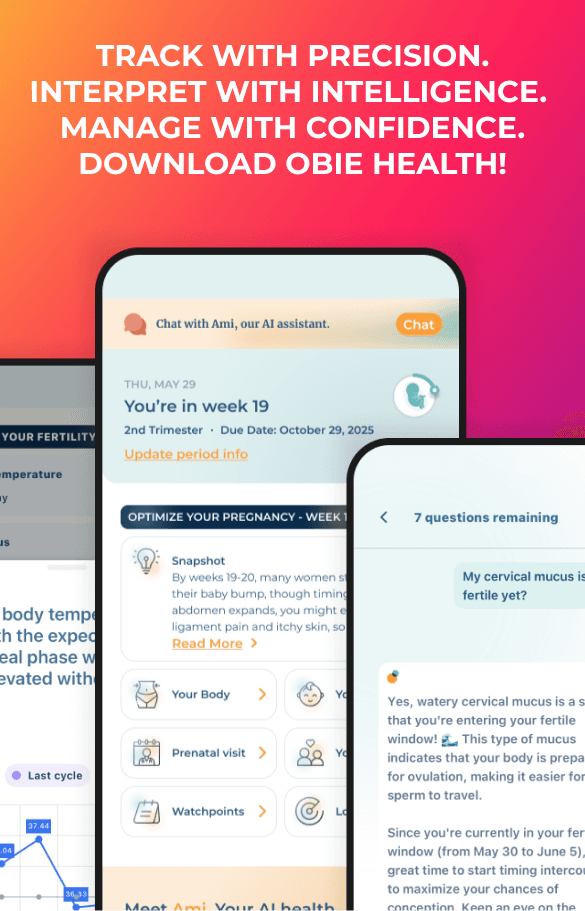How to Find a Good Ob-Gyn or Midwife
Pregnancy
Obie Editorial Team

Choosing an Ob-Gyn or midwife to deliver your baby and provide prenatal care can be one of the biggest decisions you make. Here are steps for finding a good Ob-Gyn or midwife.
Preventative care
Choosing an Ob-Gyn is about more than just prenatal care. You will also undergo many types of visits when not pregnant, such as Pap smears, breast exams, discussing birth control options, and other types of preventative care.
Insurance coverage
If there is an insurance plan covering the preventative and prenatal care, this could narrow down your choices. Some insurance companies require patients to choose doctors within a given list of approved healthcare providers.
Methods of delivery
There are two options for delivering a baby: C-section or vaginal. During the interview, it is important to ask how the doctor/midwife chooses one birthing method over the other. While there is no way to predict the path a pregnancy will take, some doctors/midwives have different criteria for choosing when a C-section is the best option, and their view should align with yours.
High-risk pregnancy
Some Ob-Gyns, especially those trained and certified in maternal-fetal medicine, have more experience in high-risk pregnancies than others. Asking the Ob-Gyn or midwife about their previous experience helps ensure excellent prenatal care in the case a high-risk pregnancy occurs down the line.
Education/certification
Choosing an obstetrician that is board certified is essential. The patient should always ask to see the board certification and research a bit before choosing a doctor. Many certified obstetricians will also be a member of the Fellow of the American College of Obstetricians and Gynecologists. (This is the FACOG after their name.) In the case of midwives, choose a certified nurse-midwife (CNM).
Breastfeeding
Not all mothers want to breastfeed, but some Ob-Gyns believe this is the only way to feed a newborn. It is very important to ask about breastfeeding beliefs so you will both be on the same page after delivery.
Circumcision
Along the same lines as breastfeeding, some Ob-Gyns have very set beliefs on circumcision. The family has the final say in whether or not the circumcision takes place, but choosing an Ob-Gyn with like beliefs makes the connection easier. When asking about circumcision beliefs, make sure to ask where the circumcision will take place. Some Ob-Gyns perform the circumcision in the hospital while others in the office and some parents elect to have their pediatrician perform it.
Birthing options
There are many options for birthing baby and you and your doctor/midwife should be completely on board with your birthing plan. If your choices conflict, there could be an unnecessary discord. This is one of the big reasons for finding the right person to deliver your baby is so important.
Hospital rights
The doctor/midwife you choose needs to have hospital rights in the hospital you choose to deliver. If this is not the case and there is an emergency, the doctor will not be able to attend the birth.
Delivery attendance
Do the doctors/midwives attend all deliveries even if they are in the middle of the night? Some doctors allow the on-call physician to care for the patient until morning. Some have a multi-practice and you may get the midwife or doctor who is on call when you go into labor.
Emergency calls and appointments
How available is the Ob-Gyn or midwife on weekends and after hours? Can you email or text questions via a portal? Not all questions and concerns occur during normal business hours and you need to know how to make contact during off-hours.
Hours of operation
Some doctors maintain multiple offices while others only work out of their office part-time. These factors need to be taken into consideration as you will likely want someone who is easy to reach.








